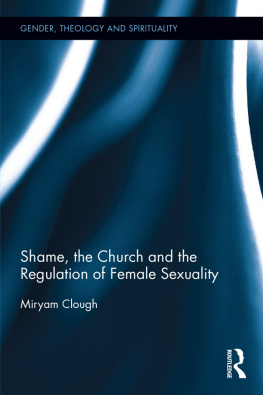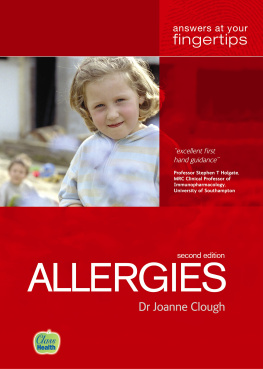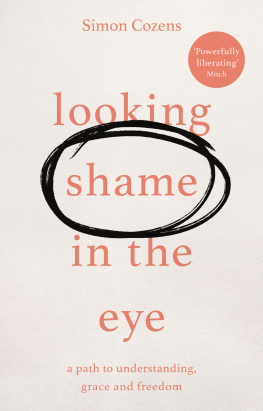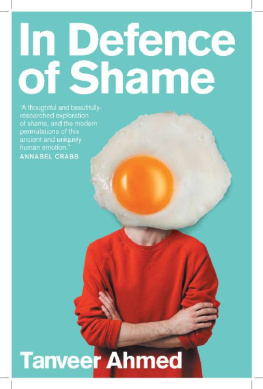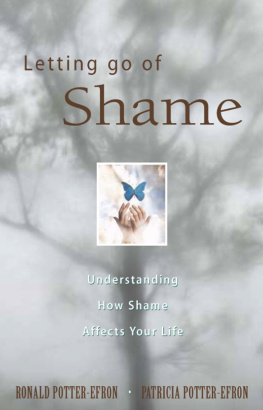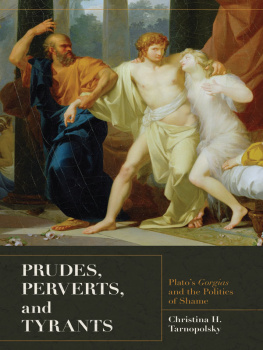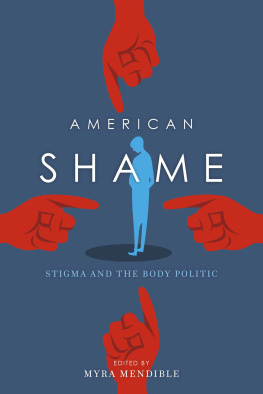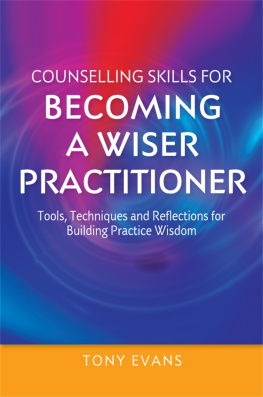Shame, the Church and the Regulation of Female Sexuality
Shame strikes at the heart of human individuals, rupturing relationships, extinguishing joy and, at times, provoking conflict and violence. This book explores the idea that shame has historically been, and continues to be, used by an oftentimes patriarchal Christian church as a mechanism to control and regulate female sexuality and to displace mens ambivalence about sex.
Using a study of Irelands Magdalen laundries as a historical example, contemporary feminist theological and theoretical scholarship is utilised to examine why the church as an institution has routinely colluded with the shaming of individuals, and moreover why women are consistently and overtly shamed on account of, and indeed take the blame for, sex. In addition, the text asks whether the avoidance of shame is in fact functional in mens efforts to adhere to patriarchal gender norms and religious ideals, and whether women end up paying the price for the maintenance of this system.
This book is a fresh take on the issue of shame and gender in the context of religious belief and practice. As such it will be of significant interest to academics in the field of religious studies, but also history, psychology and gender studies.
Miryam Clough received her PhD on shame and sexuality from the University of Bristol, UK, and has written on the topic of shame in a variety of contexts.
Gender, Theology and Spirituality
Edited by Lisa Isherwood
University of Winchester, UK
www.routledge.com/religion/series/GTS
11Being the Body of Christ
Towards a Twenty-First Century Homosexual Theology for the Anglican Church
Chris Mounsey
12Catholics, Conflicts and Choices
An Exploration of Power Relations in the Catholic Church
Angela Coco
13Baby, You are My Religion
Women, Gay Bars, and Theology Before Stonewall
Marie Cartier
14Radical Otherness
Sociological and Theological Approaches
Lisa Isherwood and David Harris
15Public Theology and the Challenge of Feminism
Edited by Anita Monro and Stephen Burns
16Searching for the Holy Spirit
Feminist Theology and Traditional Doctrine
Anne Claar Thomasson-Rosingh
17God and Difference
The Trinity, Sexuality, and the Transformation of Finitude
Linn Marie Tonstad
18Christian Goddess Spirituality
Enchanting Christianity
Mary Ann Beavis
19Schooling Indifference
Reimagining RE in Multi-cultural and Gendered Spaces
John IAnson and Alison Jasper
20Shame, the Church and the Regulation of Female Sexuality
Miryam Clough
Shame, the Church and the Regulation of Female Sexuality
Miryam Clough

First published 2017
by Routledge
2 Park Square, Milton Park, Abingdon, Oxon OX14 4RN
and by Routledge
711 Third Avenue, New York, NY 10017
Routledge is an imprint of the Taylor & Francis Group, an informa business
2017 Miryam Clough
The right of Miryam Clough to be identified as author of this work has been asserted by her in accordance with sections 77 and 78 of the Copyright, Designs and Patents Act 1988.
All rights reserved. No part of this book may be reprinted or reproduced or utilised in any form or by any electronic, mechanical, or other means, now known or hereafter invented, including photocopying and recording, or in any information storage or retrieval system, without permission in writing from the publishers.
Trademark notice: Product or corporate names may be trademarks or registered trademarks, and are used only for identification and explanation without intent to infringe.
British Library Cataloguing-in-Publication Data
A catalogue record for this book is available from the British Library
Library of Congress Cataloging-in-Publication Data
A catalog record for this book has been requested
ISBN: 978-0-415-78693-5 (hbk)
ISBN: 978-1-315-22656-9 (ebk)
Typeset in Sabon
by Apex CoVantage, LLC
Contents
The impetus to write this book arose simultaneously from my own experience of shame and my indignation at the shaming treatment of the Magdalen women, as the survivors of the Magdalen laundries are known. It is to these women those who have passed on with their stories untold and those who are alive today, many still struggling to come to terms with their incarceration in these punitive church-run institutions in Ireland and in other countries I dedicate this book.
As I prepared this text for publication, footballer Ched Evans was cleared of rape on the basis of the sexual history of his alleged victim, arguably setting back by decades progress in the way sexual crimes against women are tried (Laville 2016). Women around the globe felt violated by the broadcasting of Donald Trumps creepy, misogynist locker-room talk, which became a focus of the American election campaign. That it did not stop that country inaugurating a pussy-grabbing president is a worrying reflection of the understanding and performance of gender in the West. Louis Therouxs documentary Savile aired on BBC 2, along with the drama National Treasure on Channel 4. What struck me in these attempts to understand historic sexual abuse and how it came to be so grossly overlooked were the following themes, which are relevant to the discussion in this book.
- The past and present have different standards. What is now regarded as abuse was viewed as normal at the time. This does not excuse it.
- Western society has legitimised predatory, hypersexualised and abusive behaviour in men particularly in men with celebrity status or other forms of power to the point that such behaviour is ignored or even facilitated by others, while children and women are objectified as playthings.
- Some people (often those close to, or who idolised the abuser) are unable to believe the evidence; it is too destabilising of world views, of personal attachments, of social or material or maternal interests.
- Victims of historic abuse did not come forward at the time because they knew they would not be believed and would more likely be blamed, because sexual abuse was commonplace (normal) or they had suffered worse already.
As Jessica Leeds, who was allegedly sexually assaulted by Trump in the early 1980s, observes,
During the late 60s, 70s and into the 80s, culture had instilled in us that somehow it was our fault, the attention that we received from men. That we were responsible for their behaviour. You didnt complain to the authorities, you didnt complain to your boss. If something happened to you, you just bucked up and you went on.
(His Hands Were All Over Me 2016).
This was also the case in New Zealand, where I grew up, in those decades. There, mainstream parenting advice and praxis, when I was a young child in the early 1960s, created a degree of emotional aridity and, along with sexist and repressive attitudes to sex and to unmarried mothers, combined to produce an environment that seems to me resonant with aspects of life in Ireland described in this volume. However, while I watch my own daughters grow up with greater emotional literacy, greater intellectual and sexual freedom and more control over their lives and their bodies than I and many women of my generation had, I also fear for their safety in a world that remains alarmingly misogynist.

